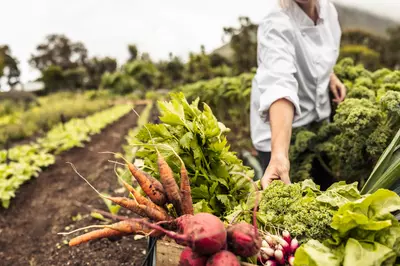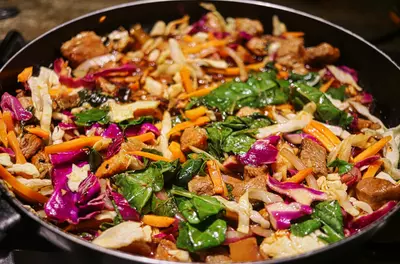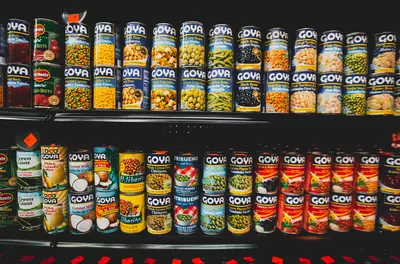
 You might not think about land often, but how we use the earth we live on plays a big part in our wellbeing - we rely on land for fresh water, food, and the health of plants and animals. In fact, we might be relying on it a little too much: humans currently use about 70% of the planet’s land, and a quarter of it is used to raise livestock for food.
You might not think about land often, but how we use the earth we live on plays a big part in our wellbeing - we rely on land for fresh water, food, and the health of plants and animals. In fact, we might be relying on it a little too much: humans currently use about 70% of the planet’s land, and a quarter of it is used to raise livestock for food.
So it makes sense that the Intergovernmental Panel on Climate Change (IPCC), the United Nations body for assessing climate-change research, released a new report with a key change that individuals can make to help save the planet: Stop eating so much meat.
What is climate change?
For the last 70 years or so, the planet’s normal warming patterns have increased at a rate much higher than any time period before, due to human activity. Deforestation, the burning of fossil fuels, and the large numbers of cars on the road all release large amounts of carbon dioxide, which traps heat near the earth’s surface.
The impact of higher temps isn’t just warmer summers; climate change can have drastic effects such as drought, storms, rising sea levels, and the devastation of animal and insect populations. Human health is also endangered as nature can’t keep up with absorbing all the extra carbon dioxide.
What does climate change have to do with eating meat?
 Eating meat, especially beef and lamb, can have harmful consequences on the planet in the following ways:
Eating meat, especially beef and lamb, can have harmful consequences on the planet in the following ways:
- Methane gas, produced by animal waste, is one of the top three greenhouse gases that trap heat near the earth’s surface.
- Producing beef products requires an enormous amount of water - 1,800 gallons per pound of beef!
- Animals take up huge amounts of land, and making room for them often requires cutting down forests, which are needed to absorb the extra carbon dioxide in the air.
The irony is that climate change will also have a negative impact on our food supply. Raising healthy crops and livestock becomes much harder when we are faced with higher temperatures and extreme weather events like drought or heavy rains.
What other benefits are there to a plant-based diet?
In addition to improving planetary health, a plant-based diet can have a positive impact on your personal wellbeing. According to both the World Health Organization (WHO) and the 2015-2020 US Dietary Guidelines, eating a diet rich in vegetables and fruit can lead to a significantly lower risk of obesity, heart disease, diabetes, and some types of cancer.
There is also evidence to suggest that a specific type of plant-based eating, called the Mediterranean diet, can reduce the risk of death from chronic disease and may even be correlated with a longer lifespan. People who follow a Mediterranean diet eat whole, natural foods - primarily fruits and vegetables, legumes and beans, olive oil, fish, and nuts.
Eating a plant-based diet can also be cost-effective - items like beans, rice, and nuts are often sold in bulk for low prices, and eating frozen veggies is every bit as nutritious as buying them fresh and in season.
How much should you cut back?
You don’t need to completely become a vegetarian or vegan if that doesn’t feel right or isn’t possible for you. Experiment with cutting your meat consumption down - if you eat meat for dinner every night, try 2-3 nights of meatless dinners, or eat a smaller quantity of meat with each meal (for example, replace half the meat in a pasta sauce with lentils).
How can you convince your family to eat less meat?
It’s hard to make a change to your dietary habits, especially if you need to convince others to join you.
- Explain why you want to make the change. Share your concerns about the planet with your partner, children, roommates, or friends.
- Involve the people you share meals with in cooking and serving. Setting up a taco bar with beans, or a pizza-building station with lots of plant-based toppings, can be a fun way to get family or housemates to enjoy a vegetarian meal.
- Put a meatless twist on old favorites: use tofu instead of beef in sloppy joes, add some spice instead of sausage to a cheese omelette, or make a bean chili so hearty that no one notices the meat is gone.
Tips for eating a plant-based diet
Plant-based diets are far more than just salads! In addition to fruits and vegetables, plants include beans, lentils, whole grains, nuts, seeds, and oils.

Reframe the way you think about meat.
Rather than making it the center of a meal (steak with a side of vegetables), consider it a garnish (vegetable stir-fry with small slices of beef).

Make your plates colorful.
Aim to eat a rainbow each week of green, red, purple, white, orange, and yellow fruits and vegetables.

Replace meat with plant alternatives.
Lentils and chickpeas work especially well in sauces, casseroles, soups, and stews.

Be creative and flexible.
Use different types of fruits and vegetables in your meals - fresh, frozen, canned, and dried are all fair game.

Grow your own vegetables and herbs.
Even a simple pot of basil can add a boost of flavor to many dishes.
Blue Zones. (2019). Food Guidelines. Retrieved from https://www.bluezones.com/recipes/food-guidelines/.
Harrabin, R. (2019 August 8). Plant-based Diet Can Fight Climate Change - UN. Retrieved from https://www.bbc.com/news/science-environment-49238749.
Intergovernmental Panel on Climate Change. (2019 August). Climate Change and Land, an IPCC special report on climate change, desertification, land degradation, sustainable land management, food security, and greenhouse gas fluxes in terrestrial ecosystems. Retrieved from https://www.ipcc.ch/report/srccl/.
NASA. Climate Change: How Do We Know? (2019 October). Retrieved from https://climate.nasa.gov/evidence/.
US Department of Health and Human Services and US Department of Agriculture. (2015 December). 2015 – 2020 Dietary Guidelines for Americans: About Meat and Poultry. Retrieved from https://health.gov/dietaryguidelines/2015/guidelines/chapter-1/a-closer-look-inside-healthy-eating-patterns/#callout-meat-poultry.
World Health Organization. (2019). Healthy Diet. Retrieved from https://www.who.int/behealthy/healthy-diet.


